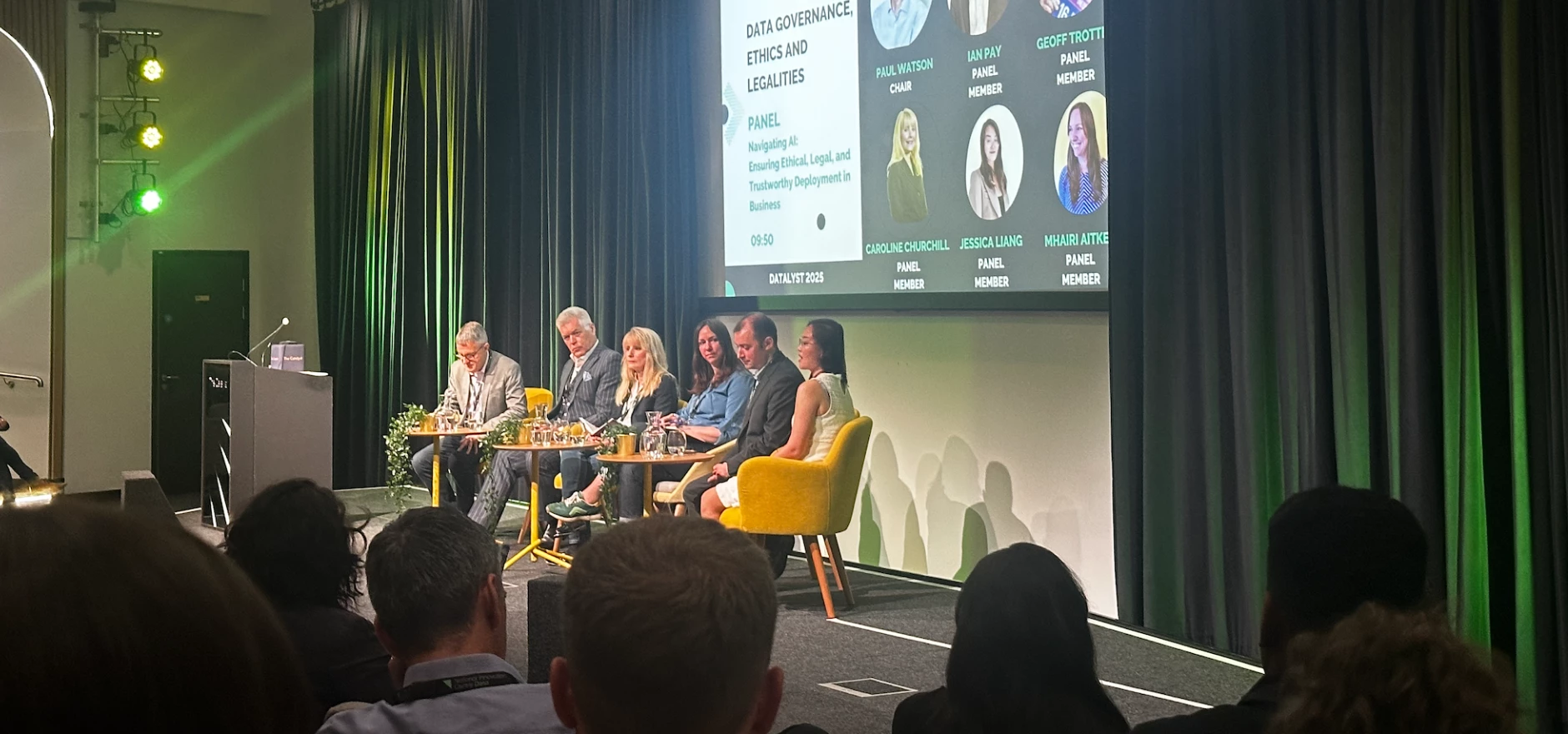
Datalyst 2025 showcases North East innovation
The inexorable rise of artificial intelligence and associated technological advances provides a platform to create “a future worth inheriting”.
That was the view of industry experts at the Datalyst 2025 conference, which took place in Newcastle yesterday (Thursday, June 12)
Attracting more than 100 people, the event - held at The Catalyst on Newcastle's Helix science and technology park - explored how emerging technologies are reshaping financial strategy, planning and decision-making.
Organised by the National Innovation Centre for Data, in partnership with Analyst Network North East, Datalyst 2025 brought together finance, accounting and data professionals from across the region to spotlight the North East’s role at the forefront of data-driven transformation.
Sponsored by CIPFA, Waterstons, The Operational Research Society and Hay & Kilner, the event - backed by media partner Bdaily - featured keynote talks, panel discussions and interactive workshops led by industry experts from organisations including Sage, Grainger, Seriös Group, Womble Bond Dickinson and Durham and Northumbria universities.
Sessions offered practical insight into how data and analytics are reshaping the financial landscape, from streamlining operations and improving forecasting, to navigating legal and ethical frameworks for responsible artificial intelligence.
Attendees also explored the growing use of real-time analytics and data visualisation to support faster, smarter decision-making and communicate complex information more clearly.
Speakers agreed that when harnessed correctly, artificial intelligence and automation can unlock significant value, greatly improving accuracy, transparency and collaboration across teams and organisations.
Andrew Cartner, director of public spending and department head of the Government Finance Function for HM Treasury, shared examples of how artificial intelligence is already being used to streamline processes and enhance decision-making.
He said: “We’re starting to use artificial intelligence to make everyday work a bit easier – from a secure, in-house version of ChatGPT to tools like Hawkeye that pull together complex datasets into one place for policymakers.
“We’ve also built artificial intelligence search engines that scan decades of policy documents and bring up the most useful insights in seconds.
“The aim is to get around 80 per cent of our people confident using these kinds of tools, because they really do have the potential to change how Government works.”
Geoff Trotter, chief executive and founder of startup ESG Excel, highlighted how artificial intelligence will inevitably change how people perceive and approach work – a shift that should be embraced as a positive opportunity, rather than a threat.
He added: “Fundamentally, the purpose of human life isn’t just to work.
“We need to take a hard look at this outdated idea that we’re here to spend 45 years working for someone else, and then retire.
“That mindset belongs to the 20th century.
“It’s time to move on.
“If we seriously consider the opportunities technologies like artificial intelligence present, it’s clear our children – and their children – won’t be working 40-hour weeks.
“We need to prepare for that future but also make sure it’s a future worth inheriting.”
Speakers, though, were also at pains to stress that, given the rapid pace at which artificial intelligence and other emerging technologies are evolving, navigating their implementation requires careful consideration, ongoing learning and a commitment to ethical use to ensure they deliver real value without unintended consequences.
Caroline Churchill, partner and lead for digital practice at international law firm Womble Bond Dickinson, added: “There’s real concern about artificial intelligence getting things wrong, so it’s vital we maintain strong oversight and question outputs carefully.
“When I was a junior, I’d read through documents and then hand them to a partner who’d mark them up with a red pen – an important learning process that’s harder to replicate now artificial intelligence produces much of the initial work.
“The challenge is making sure juniors still develop those critical soft skills, like client communication and the ability to articulate complex issues, even as their roles evolve with new technologies.”
With the event supporting charity DataKind UK, the day also highlighted the social impact of data – showing how it can drive public good, tackle real-world challenges and foster greater collaboration across sectors.
Robin Cordy, chief commercial officer at Seriös Group, and one of the keynote speakers at the event, added: “It was a fantastic day that brought together data professionals from right across the region’s business community and beyond.
“There was a real buzz throughout the sessions, with plenty of valuable insight shared on data, artificial intelligence and the role of analytics in unlocking value.
“Events like Datalyst play a key part in connecting people, sharing best practice and showcasing the innovation that’s happening here in the North East.”
Looking to promote your product/service to SME businesses in your region? Find out how Bdaily can help →
Enjoy the read? Get Bdaily delivered.
Sign up to receive our daily bulletin, sent to your inbox, for free.








 £100,000 milestone drives forward STEM work
£100,000 milestone drives forward STEM work
 Restoring confidence for the economic road ahead
Restoring confidence for the economic road ahead
 Ready to scale? Buy-and-build offers opportunity
Ready to scale? Buy-and-build offers opportunity
 When will our regional economy grow?
When will our regional economy grow?
 Creating a thriving North East construction sector
Creating a thriving North East construction sector
 Why investors are still backing the North East
Why investors are still backing the North East
 Time to stop risking Britain’s family businesses
Time to stop risking Britain’s family businesses
 A year of growth, collaboration and impact
A year of growth, collaboration and impact
 2000 reasons for North East business positivity
2000 reasons for North East business positivity
 How to make your growth strategy deliver in 2026
How to make your growth strategy deliver in 2026
 Powering a new wave of regional screen indies
Powering a new wave of regional screen indies
 A new year and a new outlook for property scene
A new year and a new outlook for property scene